I arrived in Shanghai on November 7, 2009 under the pretense of certainty. My job, my legal immigration status and even a personal liaison from the airport to the hotel my company arranged for me had all been set in stone the moment my plane took off – all I needed to do was show up and bask in the glow of the Oriental Pearl Tower.
All I needed to do was show up and indeed, it was all I could do – after a year of unemployment, and the accompanying economic turmoil, moving to Shanghai was significantly more of a necessity than a choice.
Yet a cacophony of doubt screamed beneath the surface of the sure bet I thought I’d won. What if I’m terrible at my job, or if my co-workers hate me? What if my salary is not enough to live on, let alone to leave on after one year? What am I going to do when I leave, anyway? Hell, what am I going to do when I get there?
The answer to the last question was simple: I was going to gaze upon the Oriental Pearl Tower with my own eyes.
I literally raced to the Bund, a strand of 1920s-era building along Shanghai’s Huangpu River and the best viewpoint for the skyscrapers of Lujiazui, without so much as having showered off the filth of my 14-hour flight, so you can imagine how devastated I was when I arrived and found it blocked off.
CLOSED FOR CONSTRUCTION, the sign read, emblazoned with the logo of the then-forthcoming 2010 World Expo. Better City, Better Life.
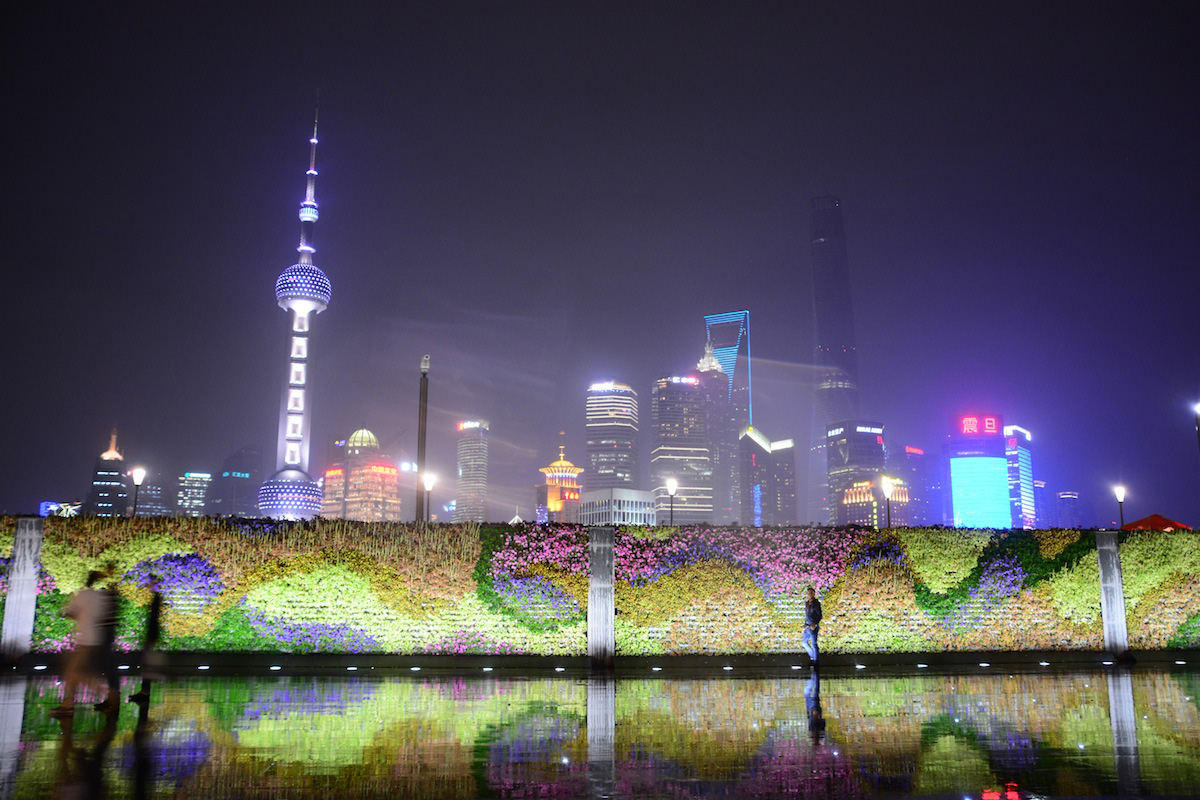
When my plane landed in Shanghai last Wednesday evening, I was armed with a similar sense of wonderment as when I arrived the first time, an equally romantic vision of how my time there would pass. Five years will reset a person, I guess.
Of course, I wasn’t going to be in Shanghai for months or years on this occasion – and I certainly wasn’t planning to live there.
I’d never had the luxury of being a tourist when I called China’s city above the sea home, my botched sightseeing stroll the first night notwithstanding, so I set up my trip with that end in mind: A hotel right on the Bund; deliberately tight time constraints; and an itinerary (albeit an implicit one) that had ubiquitous Shanghai attractions like the Oriental Pearl Tower at its core, rather than its periphery.
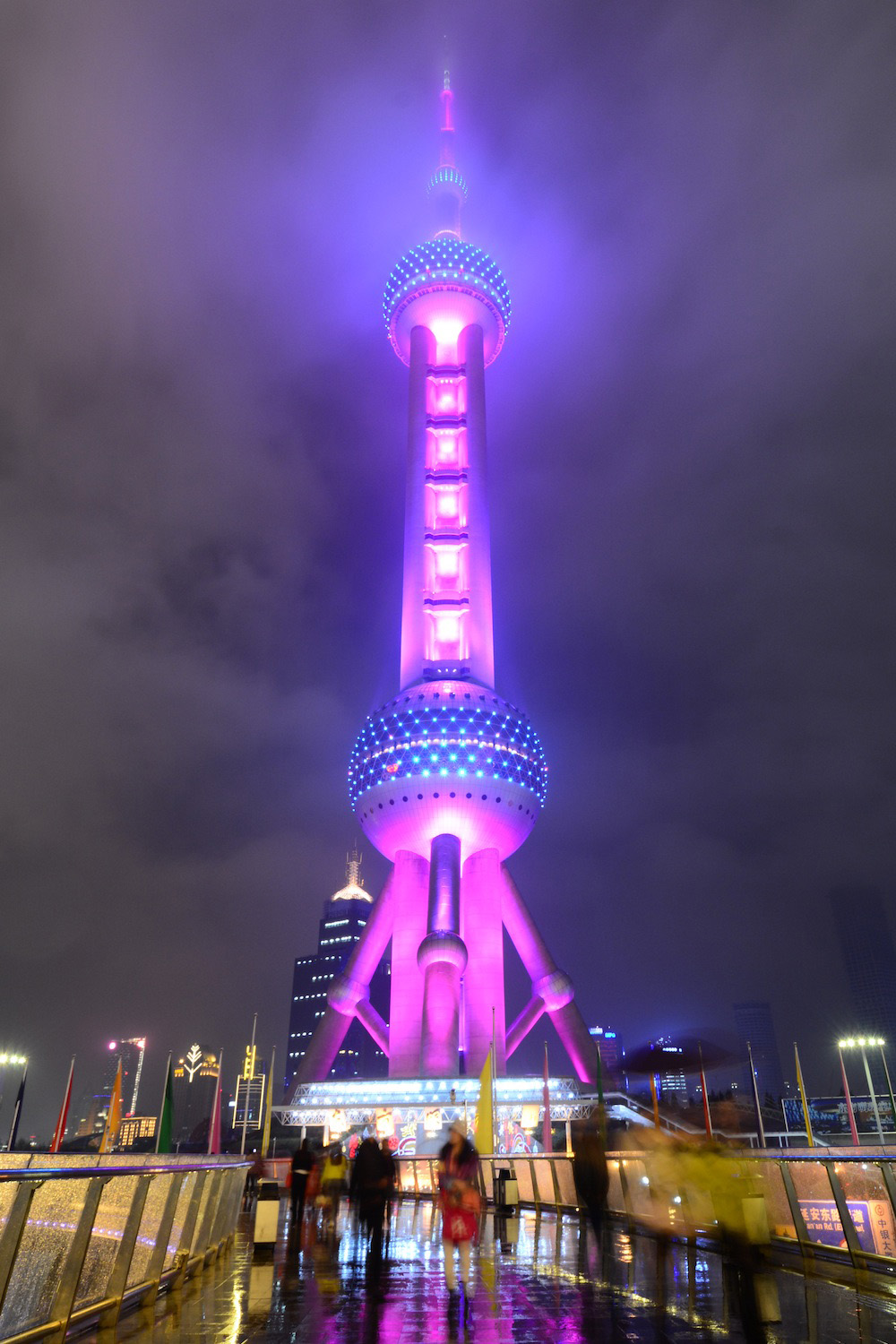
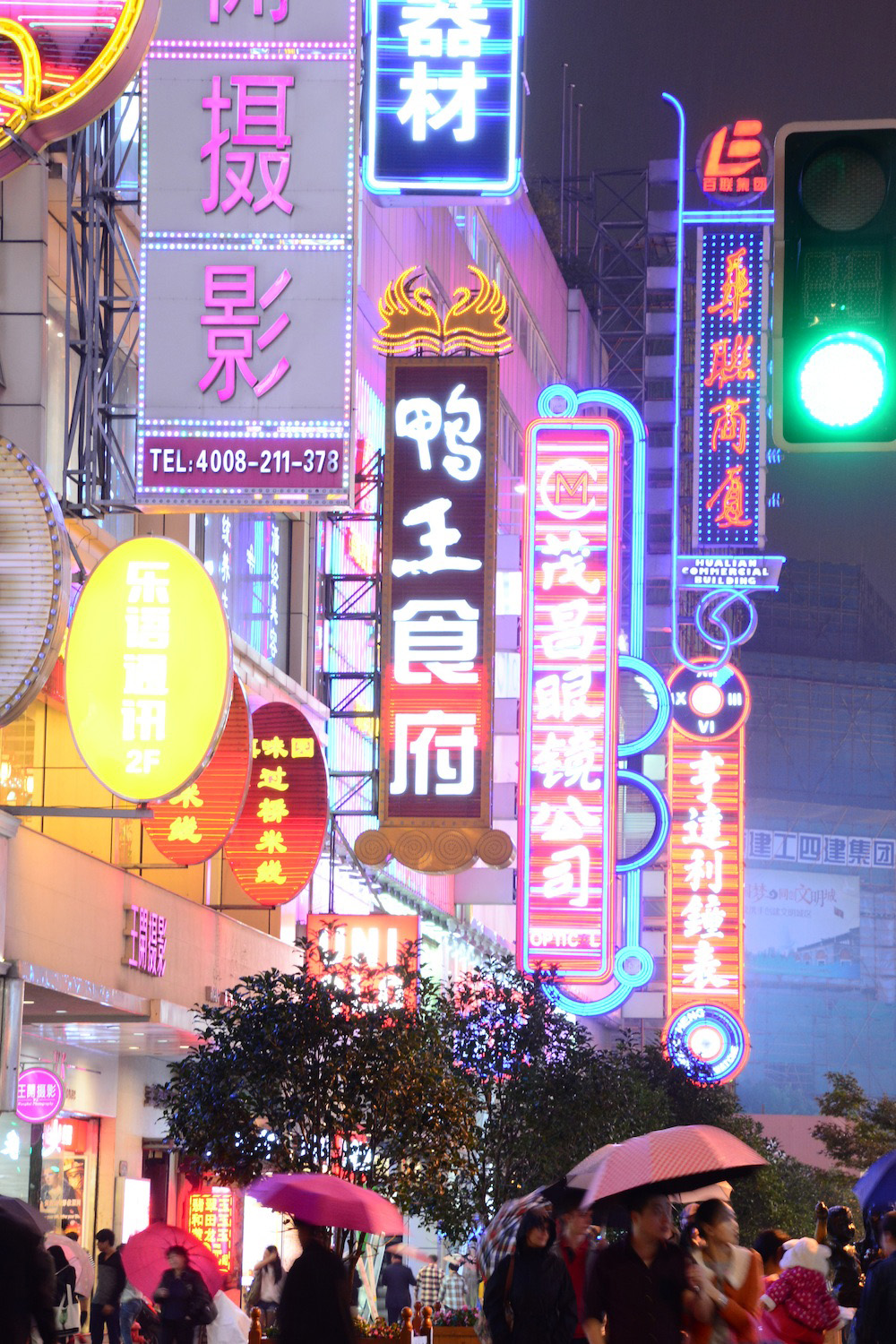
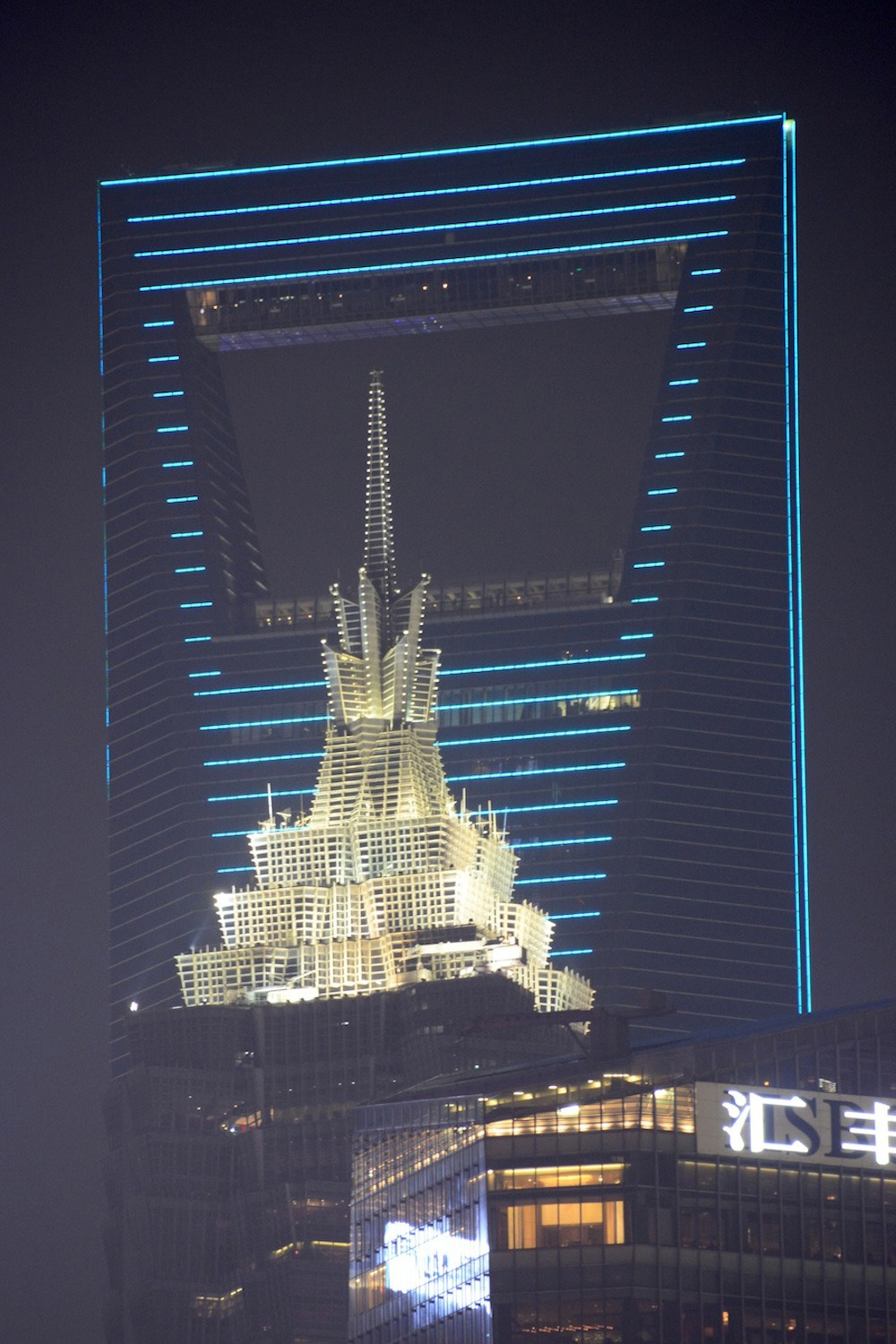
The immediate goal of my return trip was superficial: To depict the neon-drenched splendor of the city’s skyline in a way I couldn’t before, given my comparatively lacking photographic acumen and equipment.
But just as an existential well of doubt had bubbled beneath the sea of certainty that guided me to China the first time, my outward clarity of purpose this go around was merely a cover for a less convenient truth: The eight months I spent in Shanghai was the foundation of all my great achievements, but it was also the the most miserable period of my life.
Preparing a comprehensive visual document on the world’s largest city-proper in three days? Daunting, no doubt. But it’s nothing compared to the task of making peace with the shadows of your darkest days.
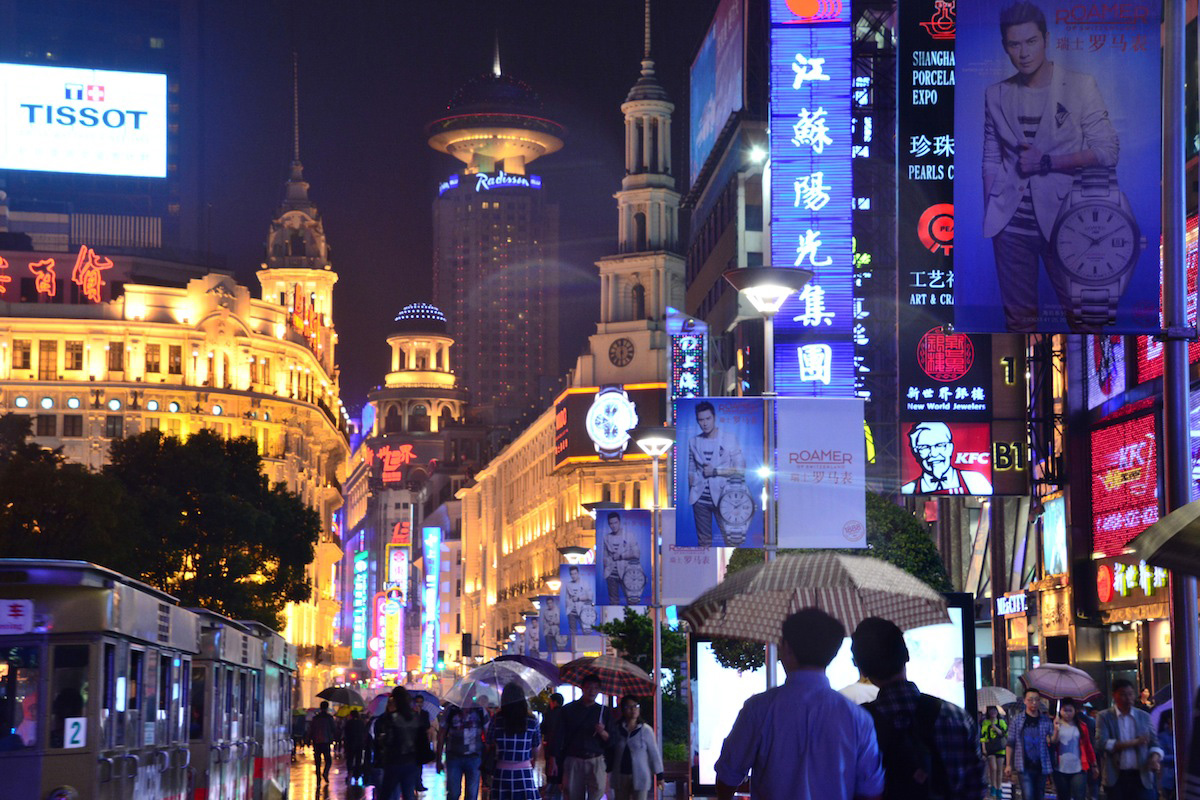
It took me exactly two days of searching independently to find an apartment in Shanghai – and it took exactly 11 minutes to travel from my front door to my desk: 30 seconds to reach the elevator; 30-60 seconds to descend 23 floors to ground level; two minutes from the building exit to the metro loading area; 30-60 seconds for the train to arrive; three minutes to span the four stations between Hengshan Road and People’s Square; three minutes to walk out of the metro station and through the Raffles City Mall to the Jinling Haixin Building; and 60 seconds to reach my office on the third floor, regardless of whether I took the stairs or elevator.
This was at once the most constant and the most variable portion of my day, the freest and the most metered at the same time. It was during my commute – and specifically, during the three minutes I spent hermetically sealed inside the metro train – that my mind was free to wander around all the places I’d rather be than Shanghai.
My apartment, in spite of its location just 11 minutes from my desk, on the 23rd floor of a dusty rose-colored tower in Shanghai’s charming French Concession, was a prison cell in the sky. It was newly-renovated, yes, but my idiot landlord Ben (his name, when said in the falling tone of Mandarin Chinese, literally translated to “extremely stupid”) had neglected to insulate the outer walls properly, which meant that when it was freezing cold outside, it was freezing cold inside my apartment, except under the wall heater or in the shower, during the 15 minutes my hot water lasted.
It didn’t used to be so cold in Shanghai, he explained when I confronted him about it after the first cold snap of the year. It’s global warming.
I had it all planned out, when I was in the metro on the way to work this is. At the time I imagined I would stay in Shanghai a year, at which point my contract would expire and I would hop the first flight to Ho Chi Minh City. After a couple months backpacking through Southeast Asia, I would hit up Australia and New Zealand, before flying over the South Pacific to South America, then making my way northward back to Texas. Or at least that was the thought most days, since there simply wasn’t enough time during a three-minute subway ride to fantasize about a trip the entire way around the world.
My daydreams so inspired me that I arrived to the office totally consumed by them, which was inconvenient – if there was one thing my South African boss hated, it was musings of a life beyond teaching English in Shanghai.
“Your enrollment numbers are high,” the surly son-of-a-bitch conceded during my six-month review in May. “And the students do love you. But it’s pretty clear you aren’t here for the same reasons all of us are – I suggest you change that, or change your employer.”
He was ultimately right: My entire raison d’être in Shanghai, once the naive fantasies I had before I got there were shattered this is, was to find the means to leave. The only thing I came to care about was taking it to the next level – and the only time I truly cared was during the middle three minutes of my 11-minute journey between two places I absolutely did not care to be.
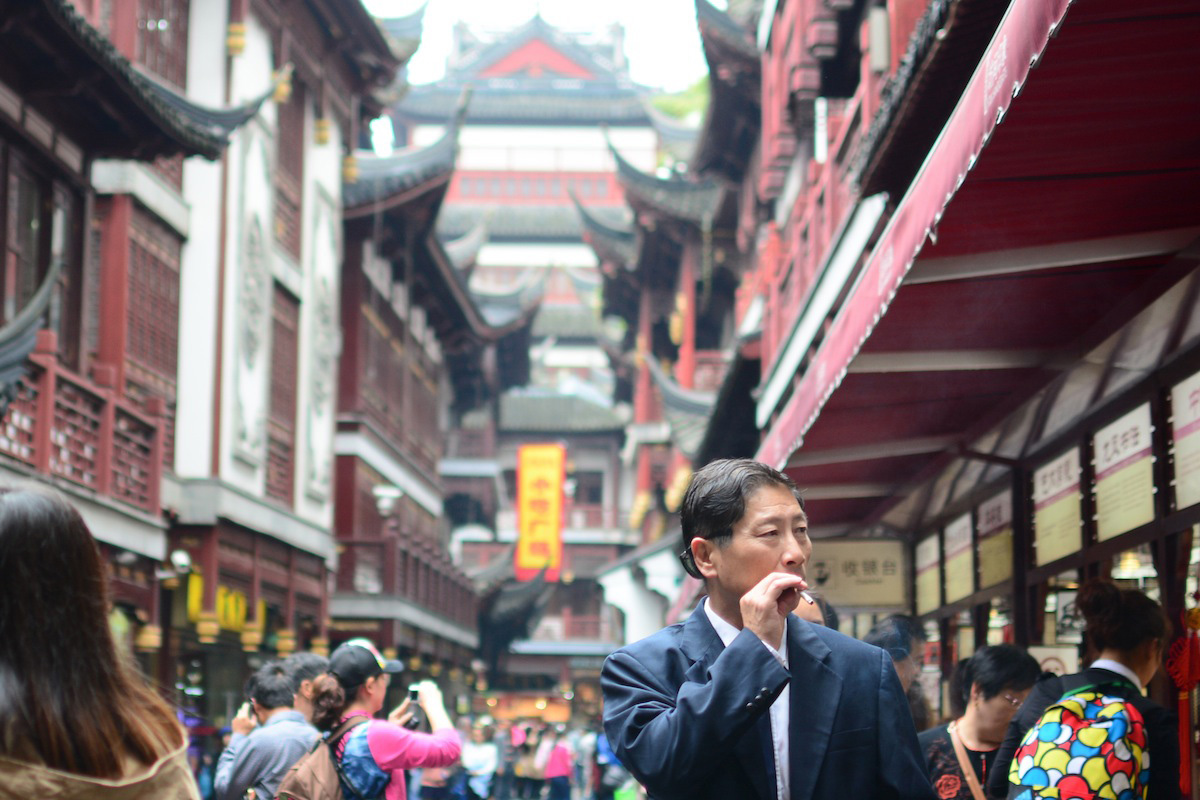
Little had changed about Shanghai’s 16th-century Yuyuan Garden during the four years that had passed between my first and second visits, but it felt like five centuries had passed in my own life.
Back in 2010, I had resigned from my teaching post just seven months into a one-year contract, and was about to embark on a three-week trip around the country with my best friend Dora and her cousin Rick. Their arrival had somehow allowed me to see Shanghai with new eyes. Shanghai, and my life there.
“It sounds crazy, you know, being that one of my two journalism gigs is unpaid,” I remember telling Dora, as we made our way toward the entrance of the garden, “but I just have this feeling that soon, all the forces swirling around me will converge and suddenly, the route I need to take will illuminate, like the exit path on a doomed aircraft.”
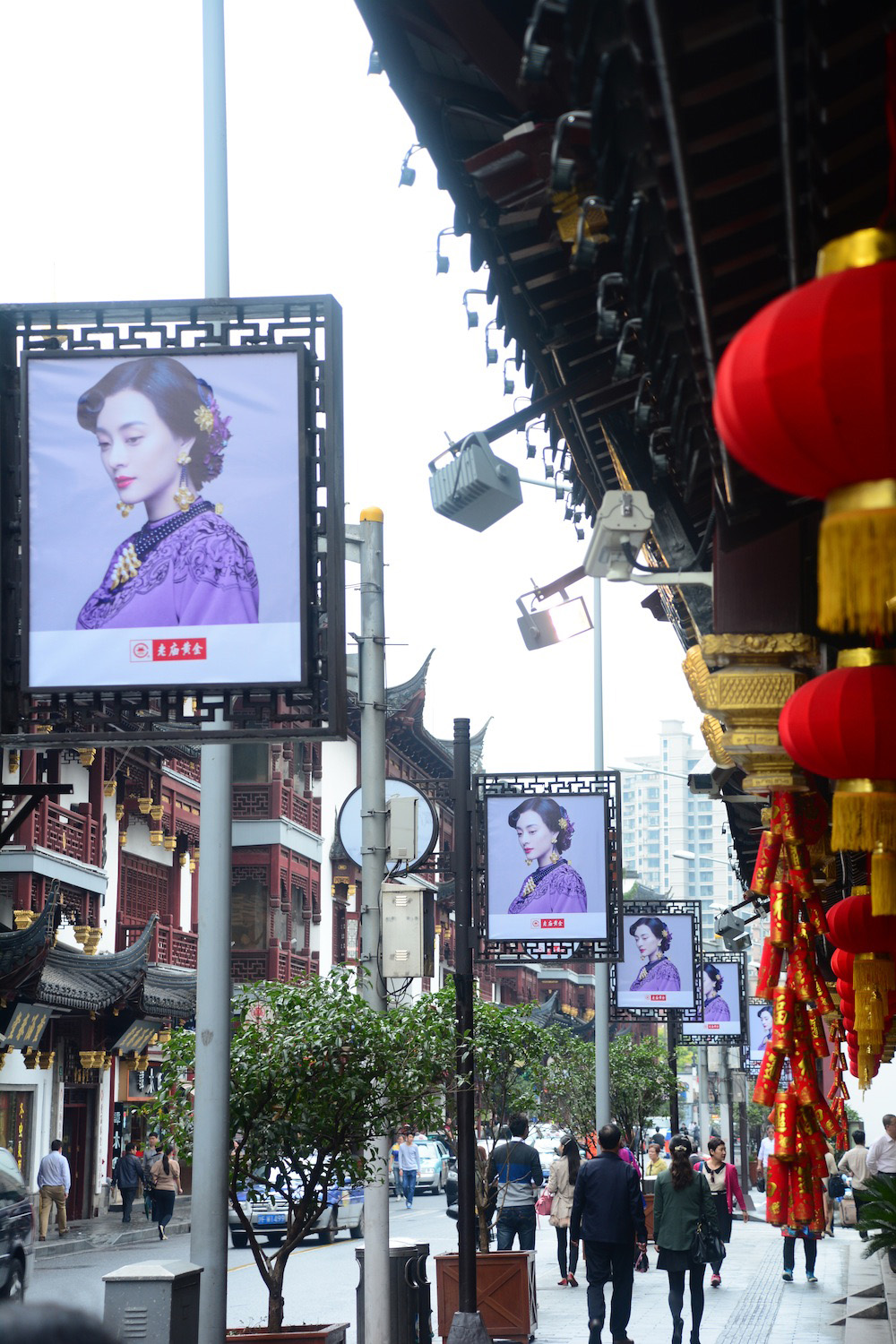
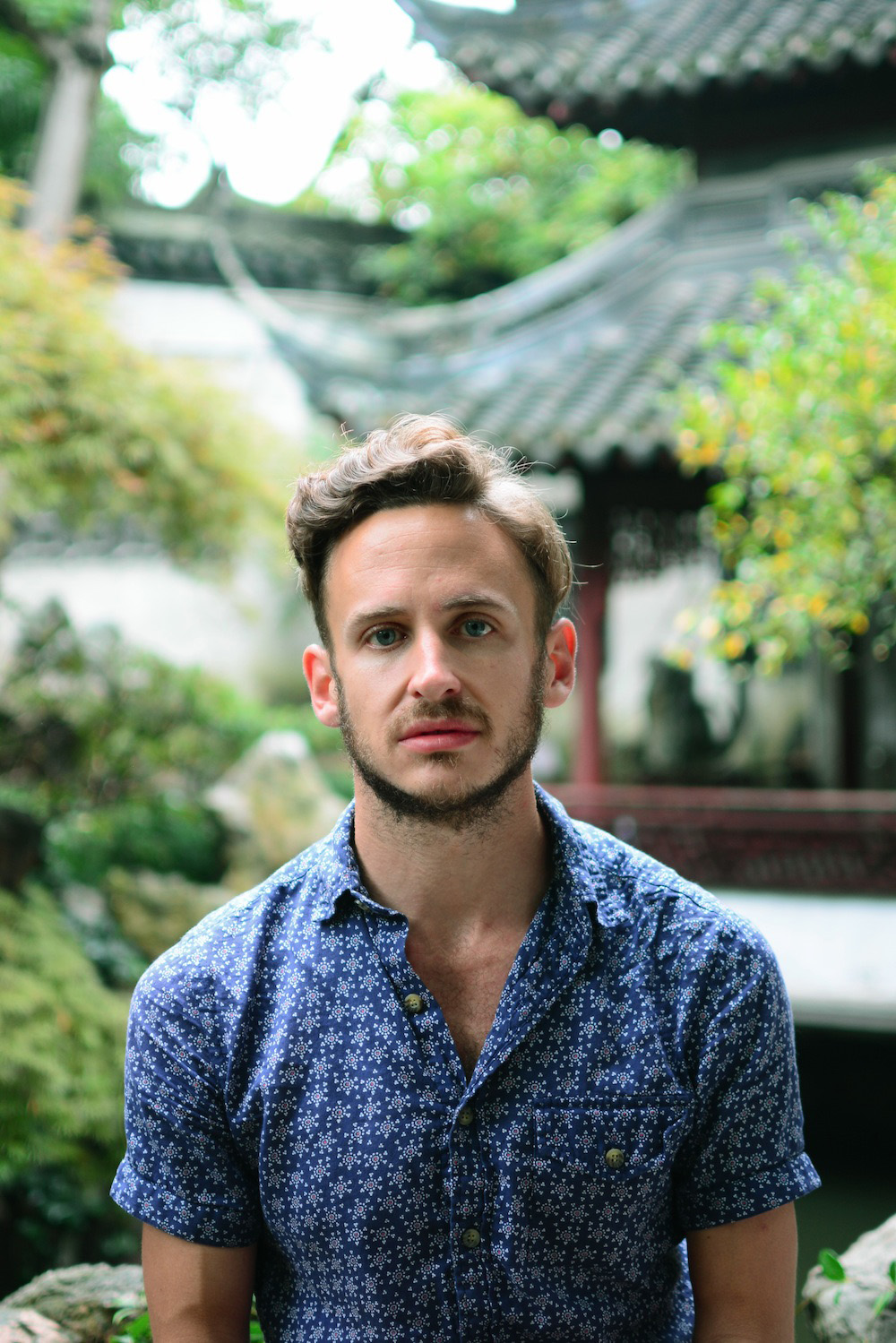
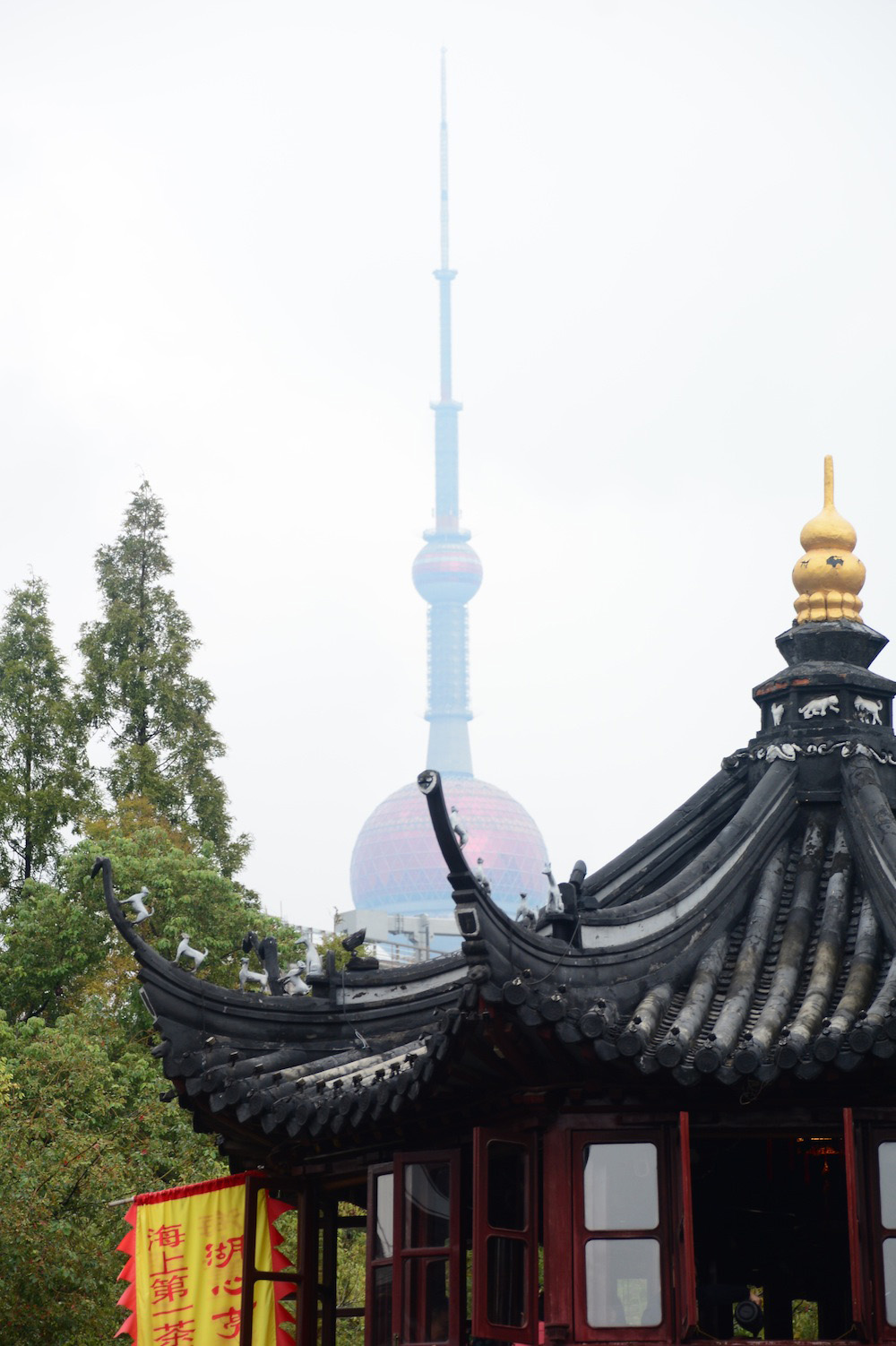
As I walked through the serpentine alleyways leading to the temple again last Friday, it wasn’t just my eyes that were different – it was as if I had died in the proverbial plane crash that was my life was back then, as if I was a different person entirely, as if it the “old Robert” simply didn’t exist anymore.
How else could it be that visiting a place I had extensively explored in the past, that was literally 10 minutes away from where I lived for eight months, delighted me as if I was the first person to ever discover it? Before, I’d found the garden pleasant, but it was ultimately just a reminder that I was still stuck in Shanghai as the rest of the world spun without me.
I mean, in spite of how optimistic I had been when I reassured Dora I was going to be just fine – that I was just fine – I didn’t believe for a second that I be leaving China anytime soon, let alone just one month later, or that I would circle the globe a dozen times and feel a burning desire to come back.
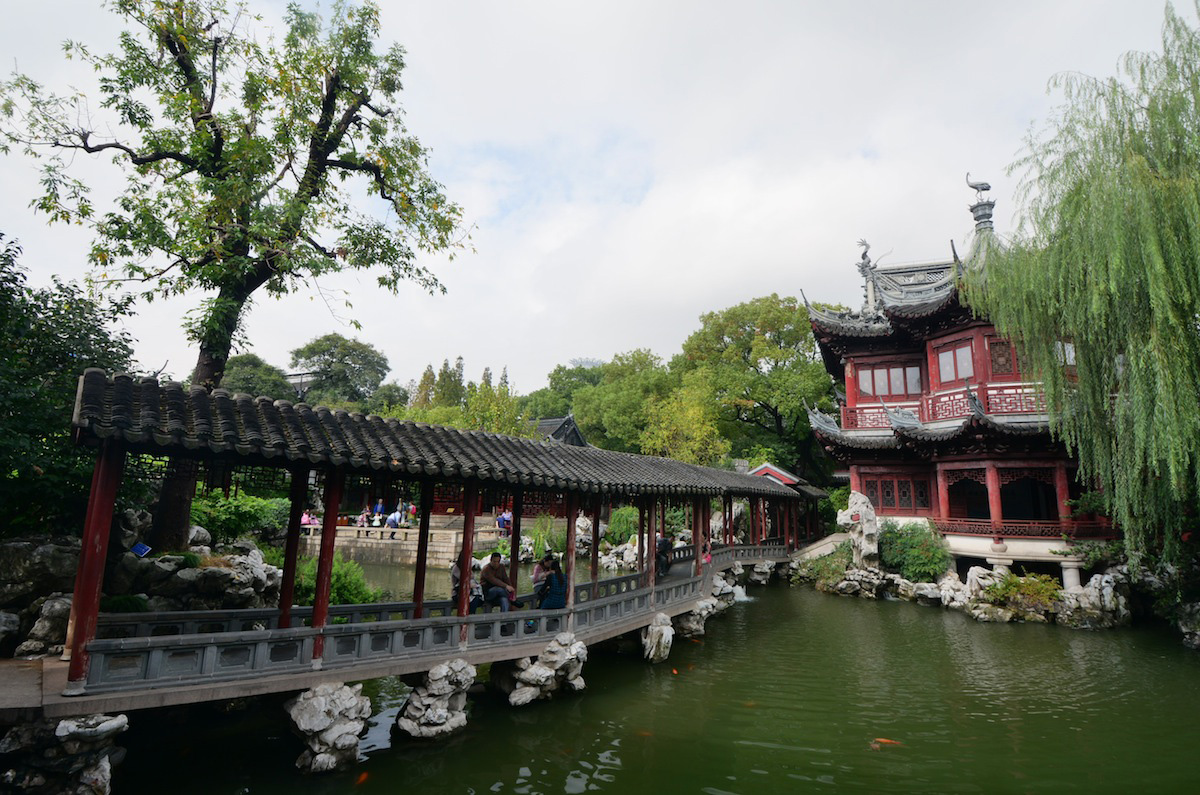
I hadn’t initially planned to meet anyone during my return trip to Shanghai – I figured the best way to come to terms with my past was in solitude.
But when Evrim, whose name in her native Turkish language means “evolution,” contacted me a few weeks before I returned to Shanghai to tell me how much she enjoyed my blog, and how inspiring she’d found it given the circumstances of her own life in the city, I felt almost obliged to meet her.
“This might sound strange, given that we only just met today,” she said, as we enjoyed a picnic lunch in lush Jing’an Park, “but I almost feel like you’re my mentor.”
And yet as Evrim told me her story – first by an emerald-colored pond in a secluded city park; then inside Jing’an Temple in the shadows of the skyscrapers that rise around it on all sides; then on the back of her bicycle as she road me to one of central Shanghai’s last remaining traditional neighborhoods; and finally along the Bund with the view of the skyline that never, ever gets old – I found that I had far more to learn from her than she did from me.
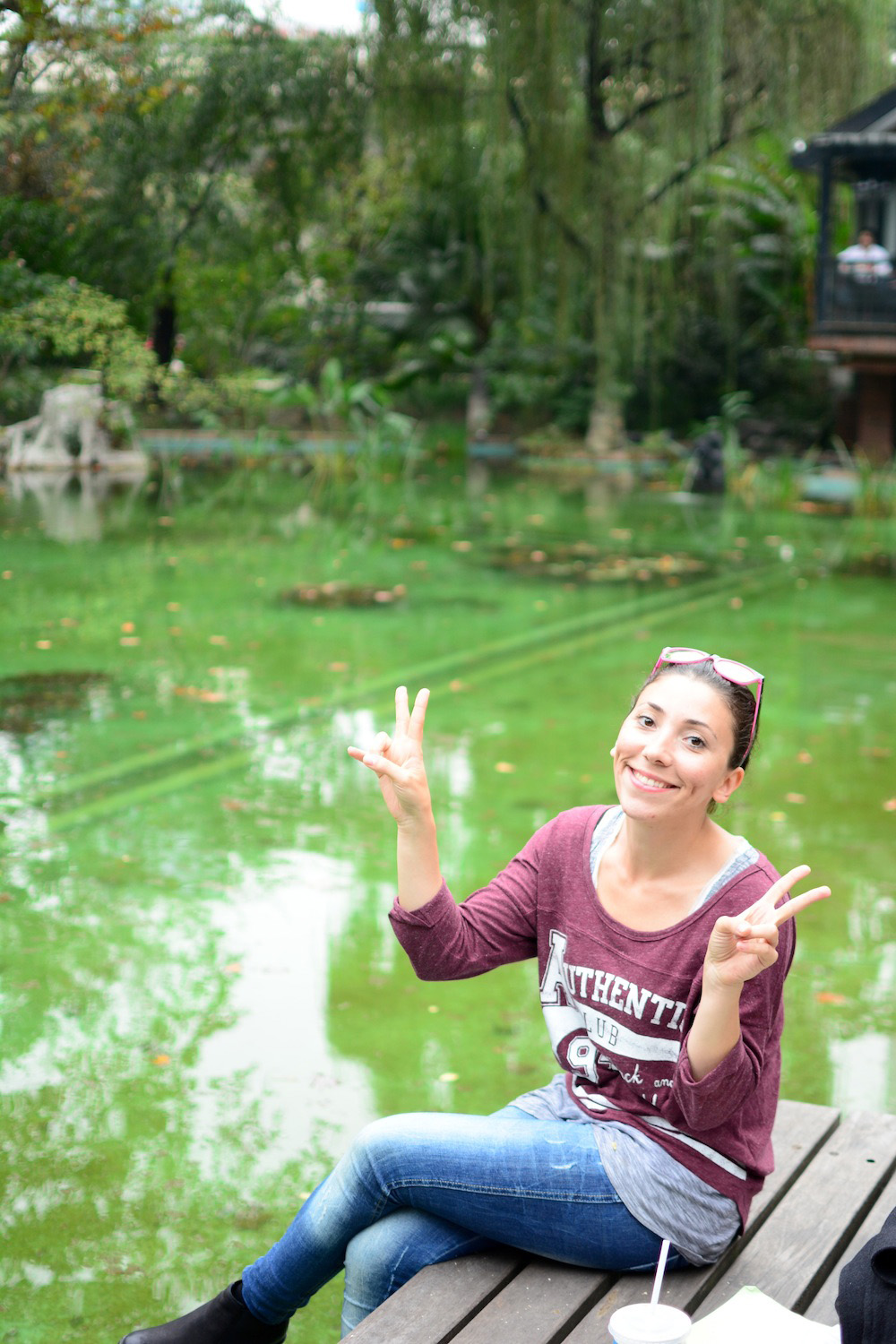
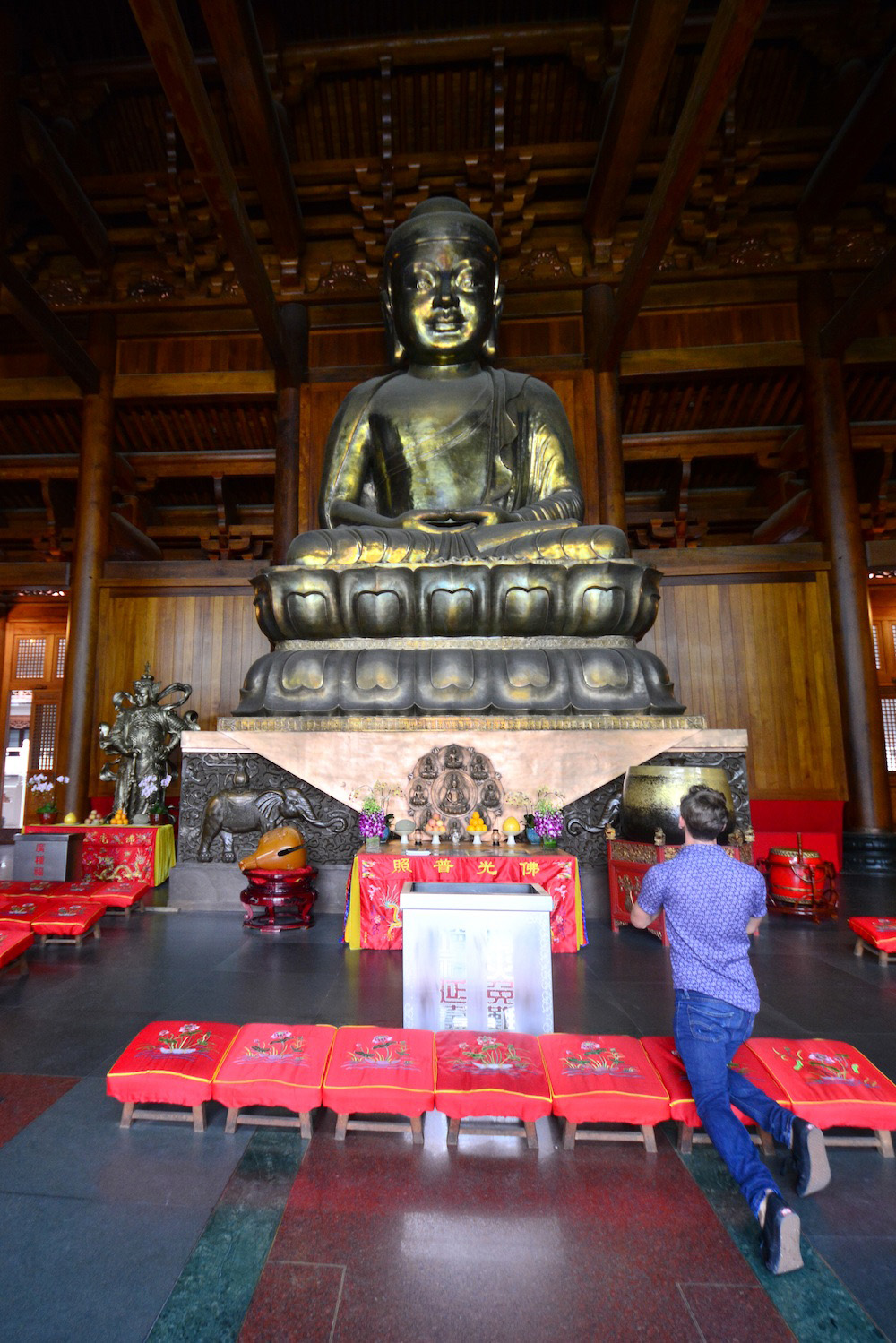
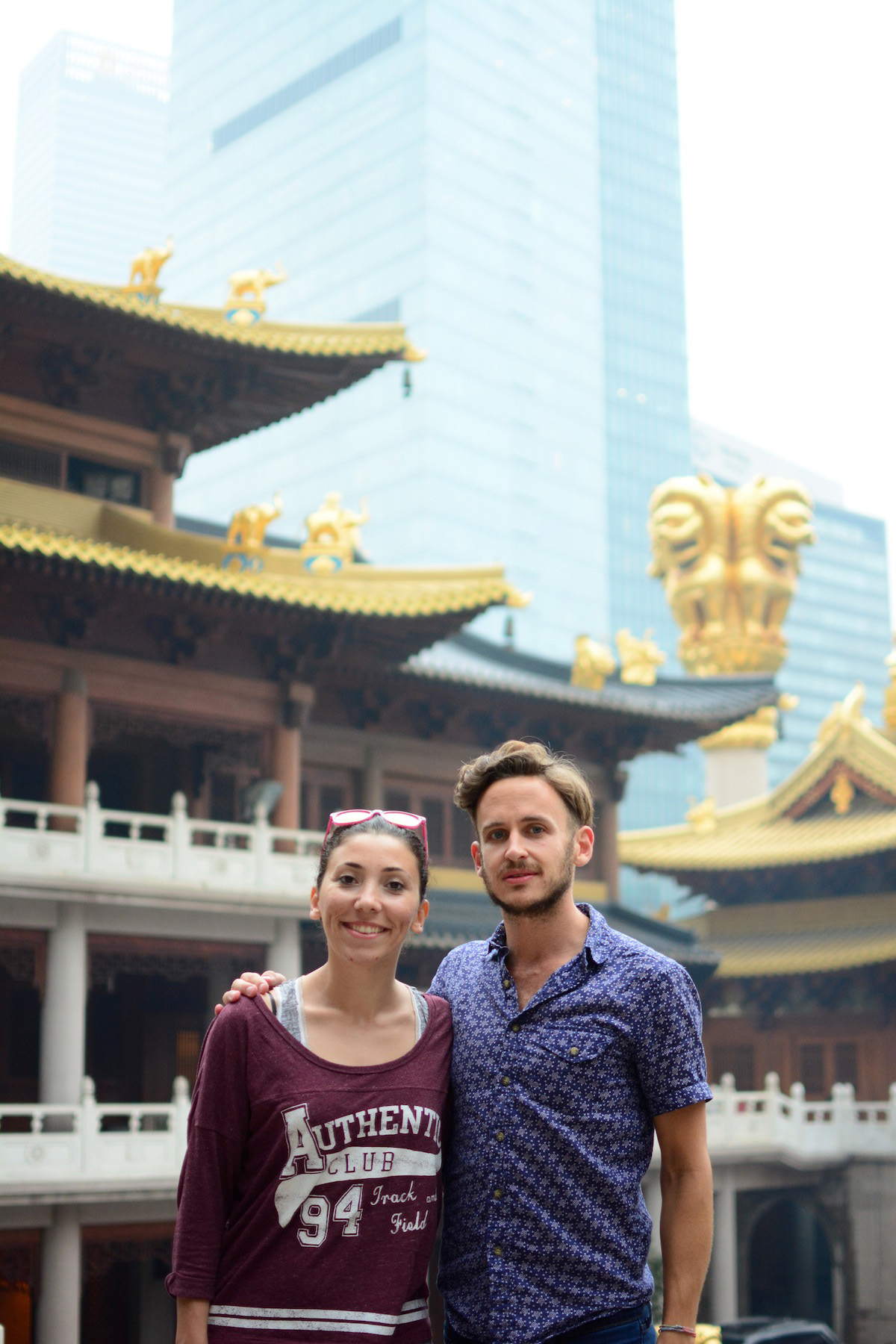
You see, while life was not always kind to me during my time in Shanghai, I cannot really claim innocence. I was frequently unkind, too: To my landlord for being the idiot he was; to my boss and co-workers who shunned me for having different aims than they did; to the random Chinese people whose slowness lengthened my 11-minute commute; and, more than anything, to myself for not succeeding quickly or perfectly enough.
Evrim, by contrast, was kindness personified from the moment we met to the moment we said goodbye – her eyes positively beamed sweetness! I was engaged enough by her presence not to break down during our encounter, but my heart ached in the most beautiful way: Learning that she walked along the same difficult path I did without being as hardened by it as I was somehow healed my old injury.
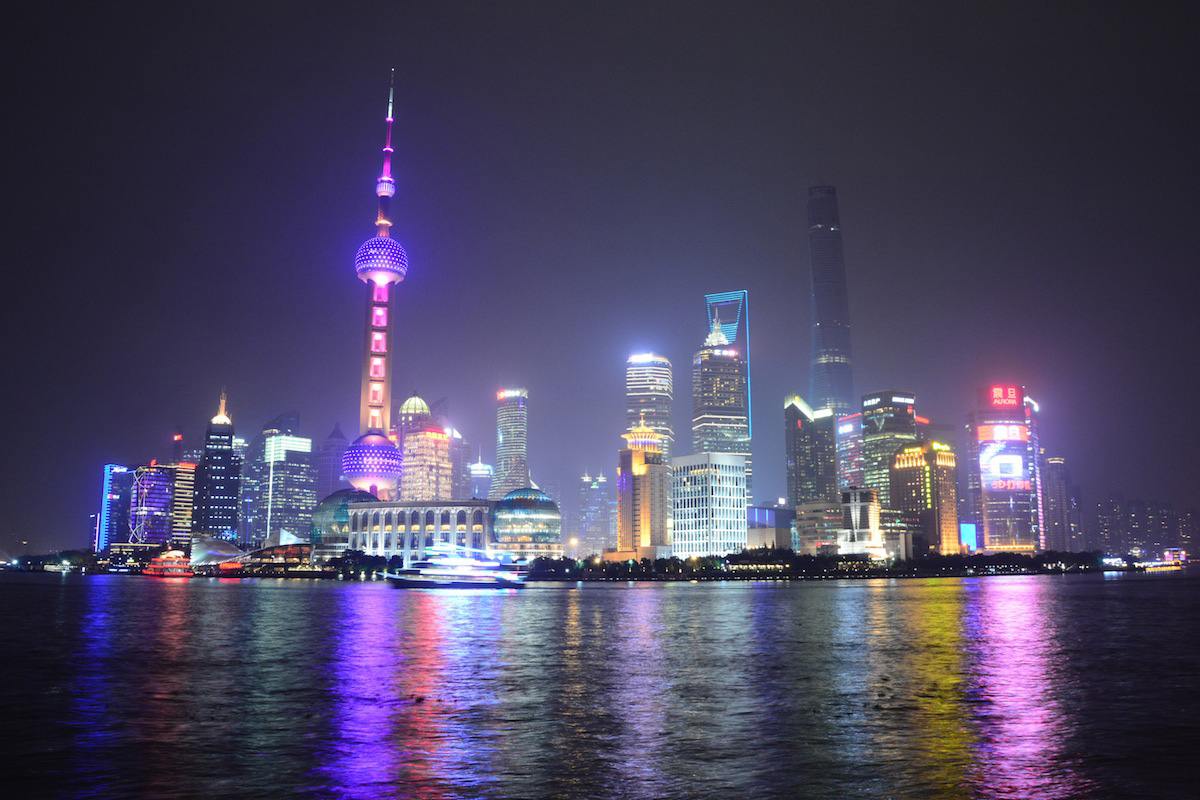
The first day I was truly happy in Shanghai was my final one, but not because I knew when I woke up that I was just hours from leaving for good.
You see, a strange thing happened that day: The sun came out. And not just shyly, peeking through the pollution layer that always seems to hover over the city. I’m talking blue skies, fluffy clouds, bright light – the whole shebang.
As I sped toward Pudong Airport that afternoon, the skyline shrank in height, but seemed to extend infinitely in its expanse, like a disc-shaped galaxy turned on its side, a sight made ever more surreal by the sunset, a blazing symphony of oranges, reds and purples. It almost felt apocalyptic.
And in a way, the world had ended – my world at least. I was about to blast off to Ho Chi Minh City, just as I had dreamed about every day in the subway, a full four months ahead of schedule no less. I could feel all the cells of my body regenerating as the plane ascended and Shanghai disappeared behind me, and although my new journey was at the forefront of my mind, I knew I would one day return.
Only then would I realize the pearl I searched the world for was always in the palm of my hand.







